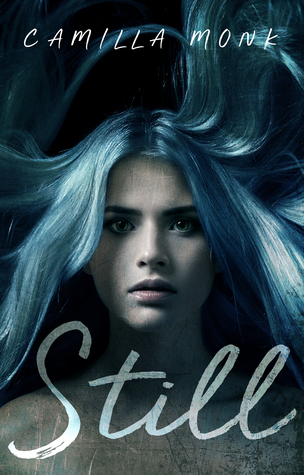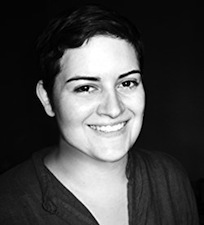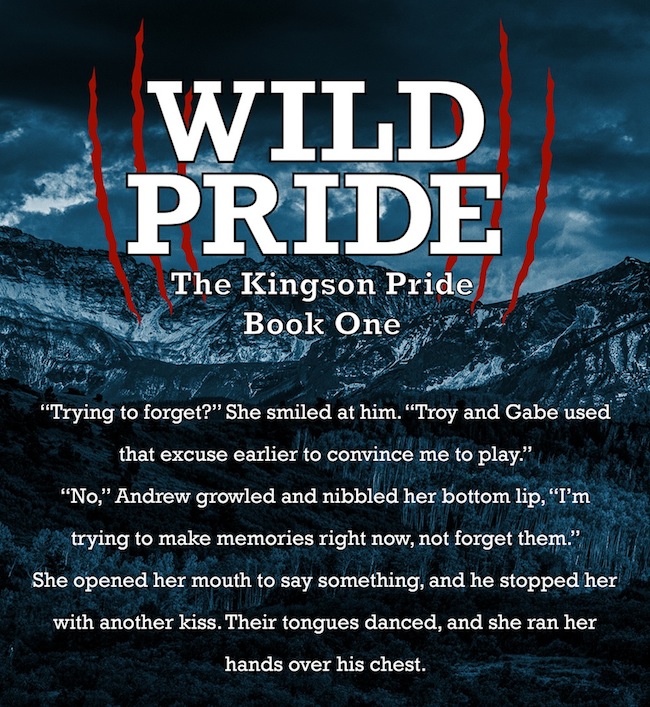
Still
Camilla Monk
Publication date: February 28th 2018
Genres: New Adult, Paranormal, Urban Fantasy
It always started like this, a pulse inside me, like a warning before the tide surged, roared… and froze everything.
Twenty-year old Emma just landed in Rome, to find the father who walked out of her life more than a decade ago and was too busy eating pizza to call. Traveling with her is a secret she’s carried alone since childhood: sometimes, around her, time stops. People and cars freeze, rain hangs still in the air and there’s only her left in the silence.
To make things worse, instead of her dad, Em runs into a past she’d rather forget in the person of Lily, her step-sis. Kind, beautiful, Harvard honors student Lily: the perfect daughter Em never was. As the two of them reconnect, Em starts to pick up some creepy vibes from Katharos, the mysterious archaeological foundation Lily works for—and more specifically the ancient stone table they’re digging up near the coliseum…
Faust, the blind hobo Em keeps running into, might be the key to piercing Katharos’s secrets. Actually, he might even have something to do with that pesky time-freezing thing. With Lily’s life on the line and no one else to turn to, Em chooses to trust this unlikely ally, but behind his charming smile and lunar antics, the guy comes with some serious fine print…
Goodreads / Amazon
—
READ CHAPTER 1:
Officially, this is not my story. It’s not my face you saw on CNN and Rai News after it was all over. I didn’t lose my mother at a young age; as far as I know, she’s still alive, probably doing fine. My paternal grandfather wasn’t a world-class historian, and I didn’t enroll in Harvard at seventeen to follow in his footsteps—I was never really good with books and studying. Just didn’t have the brains for that.
But I was there. I went to Rome to visit my dad at the time—booked a round trip ticket and six nights in a budget guesthouse with my tips from Tuna Town. I know, I know . . . Keep your jokes; I’ve heard them all. We had the cheapest tuna rolls on Broadway, though, and fresh most of the time. Anyway, I hadn’t seen my dad since I was seven, so it might sound like the adventure of a lifetime. It could even have been my story: this girl who decides to burn her meager savings on a trip to Italy to find the mysterious genitor she hasn’t heard from in thirteen years. There’s a tearful reunion, they sort out their issues, and she moves to Rome at the end—to start a new life and all.
I’ll get to that part, but let’s start with the afternoon right after I landed. I was sitting on a bench in a tiny park square tucked by the Piazza di San Marco—little more than a patch of grass under a few parasol pines. With my ripped jeans, my old Eastpak, and a can of beer tucked between my knees while I munched on a two-euro slice of margherita, I probably looked like your average gutter punk to the untrained eye. The October sun was warm in my hair—a messy bun dyed a washed-out turquoise. I liked that color, even if my blonde roots looked a little greenish.
Washing down the pizza with a slow sip, I watched over the rim of my can as buses came and went from a station on the square. Tons of buses, white and red, vomiting families of tourists coming to visit Roman ruins and that castle thing overlooking the piazza. It kinda looked like a Greek temple, with columns everywhere, white marble, and a statue of a guy on a horse in front of it. Old stuff, very nice. I took a couple of pics, mostly to pass the time because I couldn’t muster the courage to hop on a bus and go knock on my dad’s door.
I had his address saved in Google Maps; well, I hoped it was his, anyway. I’d found it not long after discovering his Facebook profile a few weeks ago, but he hadn’t replied to my friend invite. Maybe social media wasn’t his thing. He must be in his mid-fifties after all, which, to my twenty-year-old self sounded like some sort of pre-mummification stage. I set my beer down on the bench and took out my phone to check my Facebook feed for the hundredth time. I chewed on my nails. No new notification.
A few taps and a tiny profile pic of a fifty-something guy with graying blond hair appeared. Big grin, a tan, and sunglasses—taken during a vacation, I gathered.
Gabriele Lombardi.
Lombardi . . . the last name I had never worn. The name of a quiet Italian dude who’d sometimes visit our Brooklyn flat on Sundays and take me to Coney Island for the afternoon. We never did any rides, just strolled up and down the Boardwalk and shared a hot dog. He didn’t know what to say to a six-year-old, so he’d be like, “Guarda, gabbiani!” Look, seagulls! Meanwhile, I’d eat my half of our hot dog in dignified silence because I already knew what a seagull was. I would have wanted to hear about his job instead, or if he’d left Rome because of all the slavery there, like in Gladiator. And maybe, if I’d been brave enough, I’d have told him about the secret weighing in my chest and keeping me up at night, but I was too shy—too awkward for any of that.
I had no idea, back then, that Italy was even farther than Florida, and that this occasional Sunday dad of mine didn’t have legit visitation rights because he’d never filed for paternity in the first place. I didn’t know there’d be one too many fights with my mom over alimony, one too many threats of suing his lazy ass, one last Sunday, one last hot dog, and that I’d never see him again after that afternoon, when the seagulls paused in their flight above our heads for a short eternity.
Whatever. Tough shit, I guess. I chugged another gulp of beer and listened to the city’s noise, the cars, and the laugh of strangers, getting reacquainted with what little Italian I’d learned from my dad as a kid, like a song I wouldn’t remember well, but whose melody lingered. The notes threaded with Roman voices to fill the gaping holes in my vocabulary, and I could tell that those two women worked in a hospital, or that the guys sitting in the grass were checking their phone to see how to get to Quartaccio—wherever that was. Not bad for a high school dropout with a record 0.6 GPA. I gave a snort when I noticed an ad on the side of a bus with the words test di admissione. College, the final frontier . . .
I manspread wider on the bench with a bitter sigh and craned my neck to look up at the azure sky. Maybe I should message him again, and say “Hey, I’m here in Rome”? But what if he thought I was a stalker and he freaked out? What if he didn’t want to be found? Okay, that one was far-fetched; he was on Facebook, after all. And yet goose bumps bloomed under my hoodie in a familiar mix of shame and dread. It was kind of too late for that, but I was starting to realize I’d fucked up—again. I’d pictured myself starring in my very own Lifetime movie and blown $700 on a stupid impulse. Now I couldn’t even find the balls to call him and simply ask, “Do you remember me? Do you want to see me?”
“Okay,” I announced, to no one in particular—scared a couple of pigeons though.
I slammed my beer on the bench. Night wouldn’t fall for another couple of hours, at least. Museum tickets and tourist stuff were expensive, but I could always take a stroll around the piazza to clear my thoughts—the forum with the old Roman ruins was right behind that palace with the horseman. No need to pay for a ticket to check it from the street and snatch a few pics. I grabbed my backpack and beer. I frowned down at the almost-full black can. Honestly, that shit tasted worse than a Natty Daddy you drink alone for breakfast, and I didn’t want to be the girl who drowns her sorrow in grandma’s rubbing alcohol.
But I didn’t like to waste either. I decided to leave it up for whoever wanted to grab it—a bit of street solidarity never hurt. I’d barely shrugged on my backpack before this old guy with dirty track pants and gaping sneakers popped up behind me. Bumdar alert: dude hadn’t even bothered removing the cardboard sign around his neck—a few lines in Italian hastily scribbled with a Sharpie. I made no attempt to decipher it; his toothless grin spoke for itself. I flourished my hand toward the can with a wink.
He took the can and toasted me with it, chewing out a few words in a raspy singing voice. It took me a couple of seconds to make sense of the jumbled syllables—he wanted to know what a nice girl like me was doing in Rome.
My lips parted to reply. No sound came out. A loud and familiar beat in my chest muted my voice. His. Everyone else’s.
Oh God. Oh no . . .
It always started like this: a pulse inside me, like a warning before the tide surged, roared . . . and froze everything. The bum had raised my beer to his lips; golden drops remained still in the air above his open mouth. The tourists stood paralyzed mid-stride. The children’s grins were empty masks; their legs were coiled, ready for a jump that wasn’t coming, like birds about to fly away. The cars and the buses had stopped. Over the suffocating silence, all I could hear was the blood drumming in my ears, my neck. I staggered back, buried my face in my hands. I didn’t want it anymore—this hideous disease I could tell no one about.
It’d been weeks, perhaps even months since the last time, and like always, I’d almost allowed myself to believe it’d never happen again. How the fuck do you sit down in front of a shrink—or worse, your social worker—and tell them that you’re doing great, except when time stops, and everyone and everything is frozen but you? Don’t worry, though, it’s been like this since I was a kid; I’m used to it. I mean, sure, I freak out a teensy bit when I wake up at night, and I see a drop of water hanging midair from my kitchen faucet, but it’s not as bad as it sounds. Nothing the right kind of meds and a straitjacket can’t fix, right, Doc?
It wouldn’t last. It never did. I massaged my skull and kept my eyes screwed shut, repeating the words in my head like a mantra: It’s almost over. It never lasts. Never. Just long enough to make me freak out in the middle of Central Park among frozen joggers and their dogs. Wax statues everywhere whose clothes wouldn’t wrinkle when I tried to touch them, water that wouldn’t wet my hands, and the silence, the silence drilling into my eardrums. I breathed through my nose. In. Out. Slowly, ticking endless seconds in my head until the hallucination passed.
Reality rushed back to me in a deep exhale. A car honked somewhere across the piazza, and the bum chugged down the rest of my can with a reassuring gurgle. A fat kid bumped into me; I was so out of it that I was the one who kept apologizing over and over as I stumbled away from the bench and toward the sidewalk. I needed to get away from the noise, the people. Right now. Scratch tourism; my new plan was to run straight to the guesthouse, check into my room, and stay curled in the dark until tomorrow.
Fighting the urge to climb on the first bus I saw, I resolved to ask for directions instead. Because my day hadn’t been shitty enough yet, might as well stack some cringeworthy social interaction in a language I hadn’t spoken in over a decade on top of it. I waved awkward fingers at a sweaty driver who sat slouched behind his wheel. “Quale . . . Autobus . . . Appia Alba?” Which . . . bus . . . Appia Alba?
My stuttering efforts were rewarded with a compassionate wince before he motioned at another station across the park with a doughy arm. “Si può prendere l’ottantasette.” I remained stuck in place, my jaw hanging limply as I slowly processed his instructions. “Ottantasette,” he repeated, before thankfully adding, “Eighty-seven.”
I gave an eager nod. “Grazie mille, signore.” Thank you very much, sir.
Well, things were looking up. If the bus didn’t freeze on its way to my guesthouse, I might even consider the trip a small victory. I strode toward the station at a brisk pace, passing the bum I’d given my beer to earlier. Dude had collapsed on the bench, using his cardboard sign to shield his leathery face from the sun while he napped. I thought of that old Phil Collins song: “Just Another Day in Paradise,” but I wasn’t really sad for him because I knew there were good and bad days on the streets, and to him, a sunny afternoon and free beer probably made for a good one.
Lost in my own thoughts, I didn’t pay attention to the elegant silhouette catching up with me until a soft voice said, “Em? Is that you?”

Author Bio:
Camilla Monk is a French native who grew up in a Franco-American family. After finishing her studies, she taught English and French in Tokyo before returning to France to work in advertising. Today, she builds rickety websites for financial companies and lives in Montreal, where she keeps a close watch on the squirrels and complains on a daily basis about the egregious number of Tim Hortons.
Her writing credits include the English resumes and cover letters of a great many French friends, and some essays as well. She’s also the critically acclaimed author of a few passive-aggressive notes pasted in her building’s elevator.
Website / Goodreads / Facebook / Twitter
GIVEAWAY!
a Rafflecopter giveaway






















